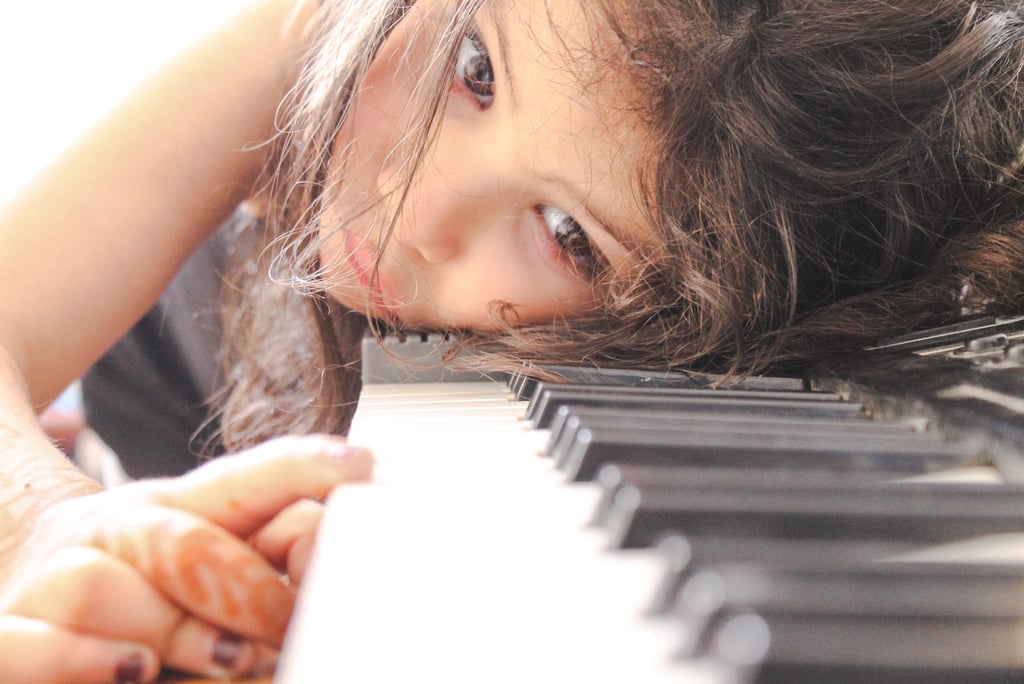My Child Wants to Quit Music - What Should I Do?
Is your child asking to quit music lessons? You're not alone - and it's not the end of the road. This blog is to help parents navigate the 'I want to quit' conversation with empathy, insight, and practical tips to reignite the joy of music or part ways with grace. A must-read for every music parent.
MUSIC EDUCATIONPARENTAL INVOLVEMENT
My Child Wants to Quit Music - What Should I Do?
Few things are as disheartening as hearing your child say, “I want to quit music.” Maybe you’ve spent years nurturing their interest, investing in lessons, and attending recitals with pride. Perhaps you’ve witnessed their moments of joy and growth through music - and now, this feels like the end of a journey you were both excited about.
Take a deep breath. This moment doesn’t have to mean failure. It may, in fact, be the start of a more meaningful conversation - one that helps your child better understand themselves and allows you to support them in a way that truly resonates.
Here’s a thoughtful guide to help you navigate the situation with compassion and clarity.


👂🏻 1. Pause and Listen Without Panic
Before jumping into solutions or persuasion, listen. Children often say they want to quit when they feel overwhelmed, discouraged, or bored. Instead of reacting with fear or disappointment, ask them why.
Try open-ended questions like:
“What’s been the hardest part lately?”
“Is there something you’re not enjoying anymore?”
“What would make music more fun again?”
Your child might surprise you. Maybe they feel stuck because they don’t enjoy practicing scales, or perhaps they’re comparing themselves to others and feeling inadequate. When you listen without judgment, you create a space where honesty and growth are possible.
Kids go through phases - that's natural. Today’s frustrations may fade in a week. But sometimes, deeper patterns emerge. Ask yourself:
Have they expressed this sentiment before?
Do they lose interest in other activities quickly?
Is there a consistent drop in enthusiasm, even after breaks or changes?
Temporary burnout, especially after a recital or exam, is common. If the desire to quit coincides with life changes (school stress, puberty, friendships), it may have more to do with emotional overload than music itself. Give it some time, but keep a gentle eye on the pattern.
📈 2. Evaluate Whether It’s a Phase or a Pattern
To a child, “quitting” might simply mean:
“I want fewer lessons.”
“I want to try a different instrument.”
“I want to play for fun, not exams.”
What sounds like an ending might just be a plea for change. Help them explore alternative paths:
Switching to group classes or more casual lessons
Exploring another style of music (jazz, pop, composition, or even film scoring)
Taking a temporary break with a clear plan to reassess after a month
Sometimes, a “music diet” instead of a “music detox” is all they need.
💭 3. Explore What "Quitting" Really Means to Them
Ask yourself: Why did we start music lessons in the first place?
Was it to build discipline?
To nurture creativity?
To give them an outlet for expression?
Remind your child (and yourself) of how far they’ve come - not in terms of achievements, but in personal growth. Highlight how music has helped them in ways that might not be obvious, like confidence, memory, or emotional regulation. Help them reconnect with their own reasons for learning music, not just your expectations.
🧘🏻♀️ 4. Reflect on the Original Motivation
Music teachers are often the first to sense when a child is disengaging. Schedule a relaxed chat - not just about technique or progress, but about enjoyment. A good teacher can:
Offer creative solutions (like letting the student pick their own repertoire for a few weeks)
Spot technical frustrations that may be making music harder than it should be
Share insights from years of working with kids who hit a motivational slump
A good teacher will always help the child feel supported during these moments, not pressured or cornered.
👨🏻🏫 5. Involve Us, Their Teacher in the Conversation
Many children quit because music becomes too task-oriented - practice logs, exam pressure, rigid routines. That joy they once felt while making up silly songs or jamming along with a cartoon theme? It got buried. Reignite that spark:
Let them create a “just for fun” playlist to play along with
Encourage musical games or duets with family
Take them to a live concert or musical event outside of their usual genre
Try composing silly songs together or creating music videos
When music becomes play again, quitting often becomes irrelevant.
🎵 6. Let Them Make Musical Choices
Sometimes, despite your best efforts, your child may truly need to stop - and that’s okay. Respect their decision while leaving the door open: “If you ever want to come back to music, we’ll find a way that works for you.” This statement does two things:
It acknowledges that they’re capable of making decisions about their passions.
It keeps music as a friend they can return to - not something they’ve failed at.
Many adults return to music years later because they were allowed to leave with dignity, not shame.
🥏 7. Respect Their Autonomy While Keeping the Door Open
Even if your child quits music, remember: nothing learned is ever wasted. Music teaches persistence, listening, coordination, and emotional intelligence. The hours they’ve spent practicing will echo in other parts of their life - from academics to friendships to future creative pursuits. They may return to music someday in unexpected ways - as a hobby, a way to relax, or a connection to their childhood. And your support today will be the foundation for that return.
🛑 8. What If They Do Quit? The Bigger Picture
🎶 In Summary: Stay Curious, Not Controlling
When your child says they want to quit music, it’s not just about music - it’s a window into their emotions, identity, and evolving interests. The most important role you can play is that of a curious, supportive guide. Whether they stick with it, take a break, or pivot entirely, your willingness to listen, adapt, and respect their journey makes all the difference.
And who knows? This might just be the chapter that helps them fall in love with music all over again - on their own terms.
Share this on:
About The Author


Padmavathy Divakaran is a distinguished pianist, arranger, and music educator, currently serving as the Director of Aum Piano Studio. Formerly the representative for MTB Exams in Tamil Nadu and Karnataka - a globally recognised music education board based in the UK - she has consistently championed excellence in music education. Padmavathy holds a BA (Honours) in Music from Middlesex University, London, and a Diploma in Higher Education – Music from KM College of Music and Technology, Chennai. Her outstanding talent has been recognised through multiple scholarships and awards, including those presented by Dr. A.R. Rahman. As a performer, she has showcased her versatility across classical and contemporary genres, playing with orchestras in both London and Chennai. She was a core member of the Roliwood Seaboard Ensemble, playing a key role in the global launch of the ROLI Seaboard. Her artistry has earned her the honour of performing at prestigious events, including a special performance for Prince William, Simon Cowell, and other notable personalities at The Founders Forum in the UK - a testament to her global reach and artistic impact.